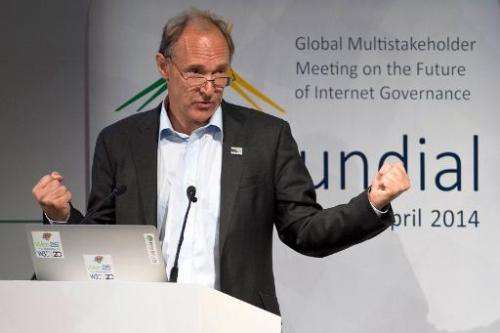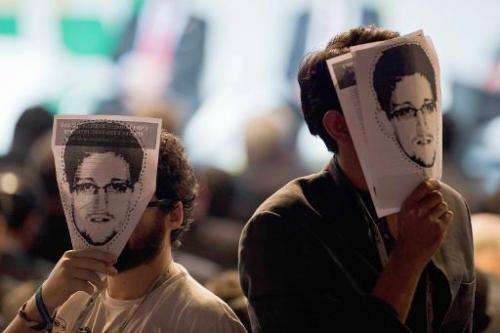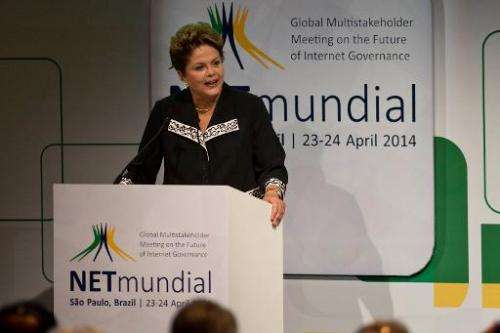Web conference in Brazil calls for multistakeholder approach

Delegates to an international conference on how the Internet should be governed called for a transparent, multi-stakeholder approach.
The participants at the gathering in Brazil called NetMundial also warned against what they called massive and arbitrary surveillance of the Internet in the wake of revelations in documents leaked by Edward Snowden of widespread US spying on the Web.
The gathering was attended by delegates from more than 80 countries including the US, as well as the United Nations, NGOs, tech companies and academics.
In a non-binding statement they said the Internet should be "inclusive, transparent and accountable, and its structures and operations must follow an approach that enables the participation of all stakeholders."
For historic reasons, the United States is home to the main organizations that administer issues such as Internet domains and protocols, and for years now this has irked other countries.
But the Google executive considered to be one of the fathers of the Internet debunked what he called the "myth" that it is controlled by the United States.
While America played an outsized role in how the Internet was run when it was founded decades ago, that has long since ceased to be the case, Vint Cerf told AFP on the sidelines of NetMundial.
"The USA doesn't control the Internet—that's a myth," Cerf said.

"It may have when I was running the program 40 years ago, yes. But not anymore," the pioneering computer scientist said during a break in the two-day gathering.
Cerf said the United States does still play a dominant role in the domain name system but that is one "they have said they are prepared to eliminate," he said.
Brazil's President Dilma Rousseff called the meeting, following the furor sparked by allegations of US spying revealed in documents leaked by former intelligence contractor Edward Snowden.
Rousseff's own communications were targeted by the National Security Agency, prompting the Brazilian leader to call on the United Nations last year to oversee a new global legal system to govern the Internet.
Respect human rights
The final statement said "mass and arbitrary surveillance undermines trust in the Internet and trust in the Internet governance ecosystem."
It added: "collection and processing of personal data by state and non-state actors should be conducted in accordance with international human rights law."
Before the final statement was issued, White House Cybersecurity Coordinator Michael Daniel said Washington was throwing its support behind the proposals for a revamped system.

"Nobody should doubt our commitment to a multi-stakeholder vision of governance of the Internet and our support for NetMundial," said Daniel.
Rousseff has said she feels encouraged by Washington's readiness to replace its institutional links to California-based ICANN (Internet Corporation for Assigned Names and Numbers), the Internet's governing authority.
In its place would come a global institution using a "multi-stakeholder" model. But some countries, including China and Russia, prefer oversight of the Internet's technical functions via a group of governments or an intergovernmental organization.
Participants also discussed how to close a digital divide with almost two-thirds of the world's population still not online.
Globally, the United Nations estimates 2.7 billion people are connected to the Internet. While that is up on 2.3 billion in 2012 and only 1.15 billion in 2007, it still means some five billion people are not connected.
"This meeting is an important contribution, but it's not the end of the story," Cerf said.
© 2014 AFP




















